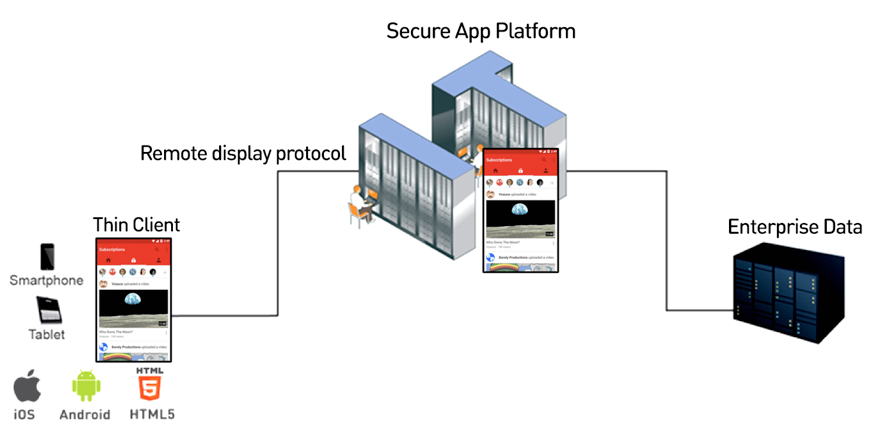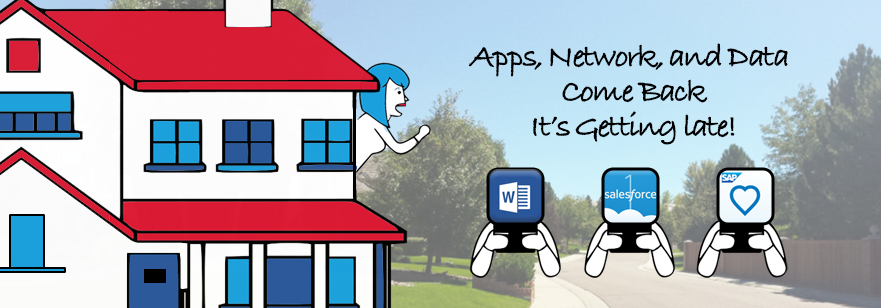In today’s mobile and cloud era, IT is losing much of its control.
Devices are often owned by employees and IT has limited control over them (BYOD). The apps are usually 3rd party apps and IT has zero knowledge and control over the apps’ content and security. The network, which the user uses to access data, is often a public/shared network and even the services/servers are now becoming cloud-based.
This lack of control has already caused lots of problems, which result in losses of billions to organizations. One major impact of these problems, is when security issues start to pop up.
The organization becomes more vulnerable to cyber threats, even though it’s hard to see the immediate damages caused. It’s inevitable that at one point, something would surface and dramatically affect the organization in both direct cost damages, as well as reputational ones.
So, how can IT get control and security to come back home?
Virtual apps can definitely do the work. Virtual mobile apps are the actual apps that employees run on their mobile devices (e.g. Salesforce1, Dymamic 365, SucessFactors, etc.), but actually run on a secure virtual platform. The users can access those apps from a thin client (running on their device), which only displays the screen of the apps on the secure platform. The diagram below shows how it works.

The secure virtual app platform is under full control of the IT department. IT can decide exactly which app to install (and of course which not to) and which users can access each app. All the data is safely under control of the IT team, which has the authority to decide what should be backed up, deleted, shared, etc. The network itself is also fully controlled by IT, which can decide the network service that could be accessed by specific users and apps. Even if the network service is on the cloud, you could still limit that service to be accessed only from the secure platform.
One of the common questions I get from people is: “Do I need to be an app developer to build virtual apps?” The answer is: “Absolutely not”.
Each app can become a virtual app. You just need to add the app binary (without any modification required) to the Nubo platform and the platform will immediately generate a unique virtual app for you. Beside the common security and control benefits, virtual apps allow you to move fast, when facing tight schedules, and deploy any app to your users with minimum cost or investment.










